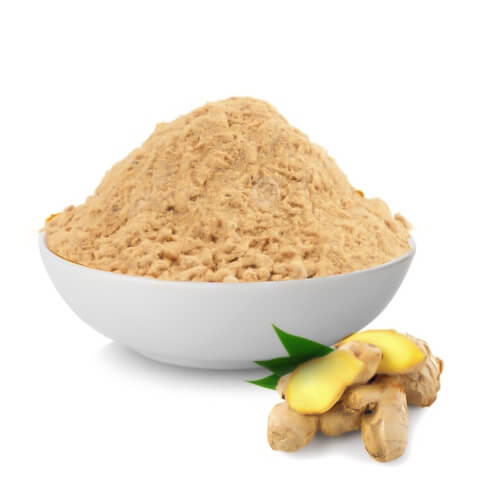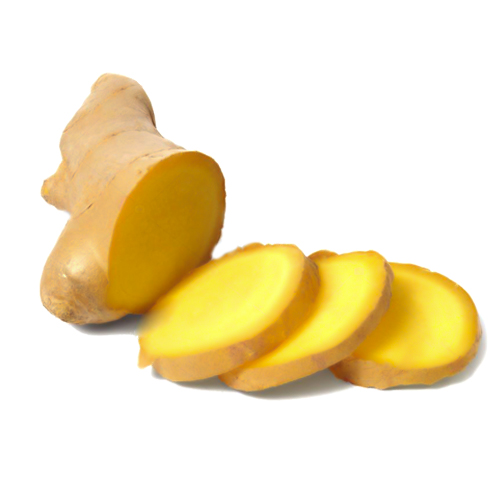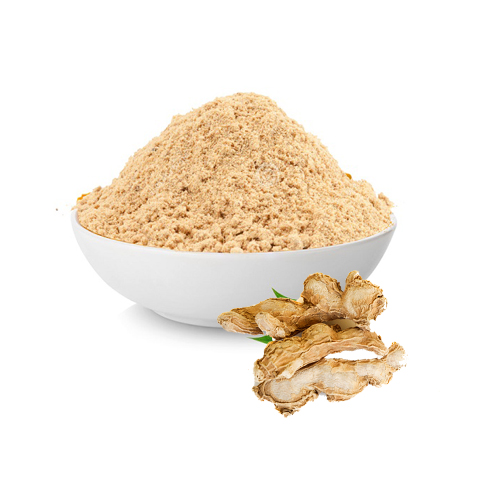Ginger - Zingiber officinale

Ginger (Zingiber officinale) is a flowering plant whose rhizome, ginger root or ginger, is widely used as a spice and a folk medicine. It is a herbaceous perennial which grows annual pseudostems (false stems made of the rolled bases of leaves) about one meter tall bearing narrow leaf blades. The inflorescences bear flowers having pale yellow petals with purple edges, and arise directly from the rhizome on separate shoots
Ginger is in the family Zingiberaceae, which also includes turmeric (Curcuma longa), cardamom (Elettaria cardamomum), and galangal. Ginger originated in Maritime Southeast Asia and was likely domesticated first by the Austronesian peoples. It was transported with them throughout the Indo-Pacific during the Austronesian expansion (c. 5,000 BP), reaching as far as Hawaii. Ginger is one of the first spices to have been exported from Asia, arriving in Europe with the spice trade, and was used by ancient Greeks and Romans. The distantly related dicots in the genus Asarum are commonly called wild ginger because of their similar taste. In 2018, world production of ginger was 2.8 million tonnes, led by India with 32% of the world total.
Health Benefits
-
Contains gingerol, which has powerful medicinal properties
-
Can treat many forms of nausea, especially morning sickness
-
Ginger appears to be highly effective against nausea
-
Ginger helps with weight loss
-
Turmeric can increase the antioxidant capacity of the body
-
Ginger may play a role in weight loss and its potential to help increase the number of calories burned or reduce inflammation.
-
Ginger can help with osteoarthritis.
-
Osteoarthritis (OA) is a common health problem. It involves degeneration of the joints in the body, leading to symptoms such as joint pain and stiffness.
-
Ginger may help lower blood sugars and improve heart disease risk factors.


-
Ginger Can help treat chronic indigestion: Chronic indigestion is characterized by recurrent pain and discomfort in the upper part of the stomach.
-
Ginger has a very long history of use in various forms of traditional and alternative medicine. It’s been used to aid digestion, reduce nausea, and help fight the flu and common cold, to name a few of its purposes.The unique fragrance and flavor of ginger come from its natural oils, the most important of which is gingerol.Gingerol is the main bioactive compound in ginger. It’s responsible for much of ginger’s medicinal properties. Gingerol has powerful anti-inflammatory and antioxidant effects, according to research. For instance, it may help reduce oxidative stress, which is the result of having an excess amount of free radicals in the body
-
Ginger may significantly reduce menstrual pain.
-
Ginger may help lower cholesterol levels, high levels of LDL (bad) cholesterol are linked to an increased risk of heart disease.
-
Ginger may improve brain function and protect against Alzheimer’s disease.
-
Ginger can help fight infections; Gingerol can help lower the risk of infections. In fact, ginger extract can inhibit the growth of many different types of bacteria
